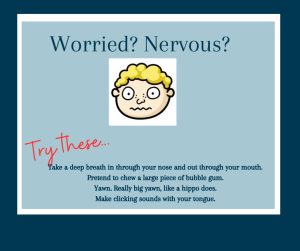Teenagers & Their Speech

I’ve talked about my children before (these people aren’t them) and there’s a high chance I have mentioned the adolescent years for my eldest son weren’t the easiest. Thankfully, we are out of that phase, and he has started his life as a young adult equipped with many things including the ability to speak well.
When I was 6 or 7 my mother sent my siblings and me to speech lessons because she hated speaking to large groups of people and she wanted us to have the opportunity to get over that fear, and be confident. So thanks Mum too, because of her decision it has created a life-long journey for me and now my children.
My eldest speech lesson journey was quite that easy. From Year 3 to Year 6 I created a group of boys who come to speech lessons with me on a weekly basis. They were fairly dis-interested but they did attend, some did their homework, and they all passed every exam. In Year 6 when he was 10, he was one of the 6 school leaders. He loved having this role of responsibility, the public speaking and presenting the role required. The extra tasks the young leaders were assigned to. But that ended right at the end of that year.
Moving into tween and teens the picture completely changed. We had the mumbling years, the punching walls in frustration at being told ‘no’ years, we had the ‘shut up in the bedroom on a device’ years. We had a very tough few years with many aspects of teenage life. There were many arguments and many, many temper tantrums.
He has come out of adolescence and he’s at university now. It was sad when he headed off but only for 5 minutes. The relief was actually huge and that feeling continues even 9 months later. I’m struggling to put into words that relief it was to see him go and enjoying it. It was ‘thank god he’s here’ as in here at uni but also here at all. Also not saying that’s the end of the worry but a load has been taken off and I’m looking forward to seeing him thrive as a young man.
This isn’t me just being ‘oh look at me and my fabulous son’, other people have complimented him on his speech and communication too, including two bosses. So yay. I’ll take that thanks, because I did force him into speech lessons for about 5 years. Eventually giving up when he was 10 but as they say, getting in early was key.
The other day I had another 19 year old male who was in the same speech group as Jacob say thank you for the speech lessons he received from me as he now can see how beneficial they were and now he is reaping the benefits as he too, enters into young adult life. Pleased to have helped.
My youngest child, now aged 17, on the other hand, loved giving us the runaround when he was young. He wore glasses from age 3 or maybe 4 that he wasn’t keen on so he’d throw them away. Out the car window once, into the shrubs many times. The amount of new glasses we had to buy we should’ve taken out shares in optometry. He loved water and one day he brought the hose into the lounge to give the carpet a good clean. The insurance agent found that funny, I still don’t. There are many, many stories around Luka that I couldn’t cover everything. As he has grown he shows his happy-go-lucky nature every day. He loves a laugh and a hug, he’s super helpful around the house and he’s always up to do the dishes. He still continues to speak in 2-5 word sentences and he’s had speech language therapy since he was 3 (different to speech lessons, I’m a speech teacher, not a speech language therapist)
Teenage years are tough and they are very likely to go through a mumbling stage. Whilst you can’t force them to speech lessons at this age, no matter how much you want them too, you can introduce them to online speech lessons. They are all pre-recorded so they don’t have to worry about making small talk or mistakes. The videos are less than 5 minutes long so it’s easier to maintain their focus, it is done at home so no one knows. Probably the most important thing for a teenagers.
Lessons within the course have multiple benefits – the exercises help them to reduce anxiety, relax parts of their body they may be holding tension in (jaws, necks, shoulders), and it also helps prepare them for speaking clearly and confidently when they are ready. It seems around 19. But that’s all good, this is a long-game.
The one thing that I do maintain to help keep your eye on your teenagers is dinner around the dining table. Without tech. I truly believe this has helped my boys become the young men they are. Not saying they are perfect, but things could’ve ended very badly and I do thank our dining table for its help with this journey.
Talking to them, listening to them, making sure you meet their eyes when you talk to them so they have nowhere to hide during intense discussions. Parents too for that matter. Good luck out there, there are many complications for teenagers these days.
Click on this link for a freebie view – Clear Speech for Children. Set it up, show your teen to see if they follow along with it. If you think it will help them out, it’s easy to purchase from there. Use OCT20 for a 20% discount for reading all the way to the end of this blog and because the more young people we have with confidence in their own speaking ability the better it is for our community.
“Thanks Miriam for my speech lesson when I was a kid. I see now how they were helpful and I’m pleased I feel confident with my speech when I talk to people and things like job interviews” SP, 19 years. (I hope he’s thanked his parents too for them seeing the value and investing in his future.)
Have a great week, Miriam.
